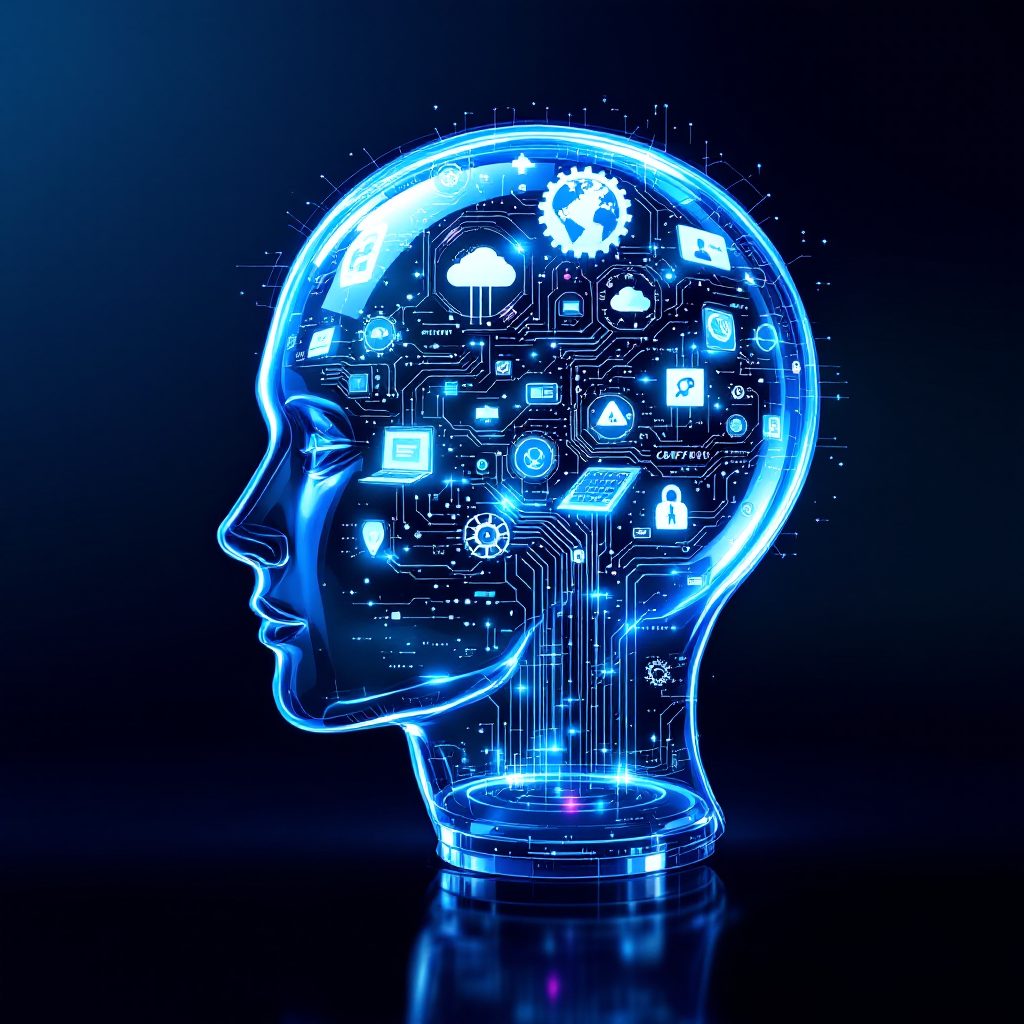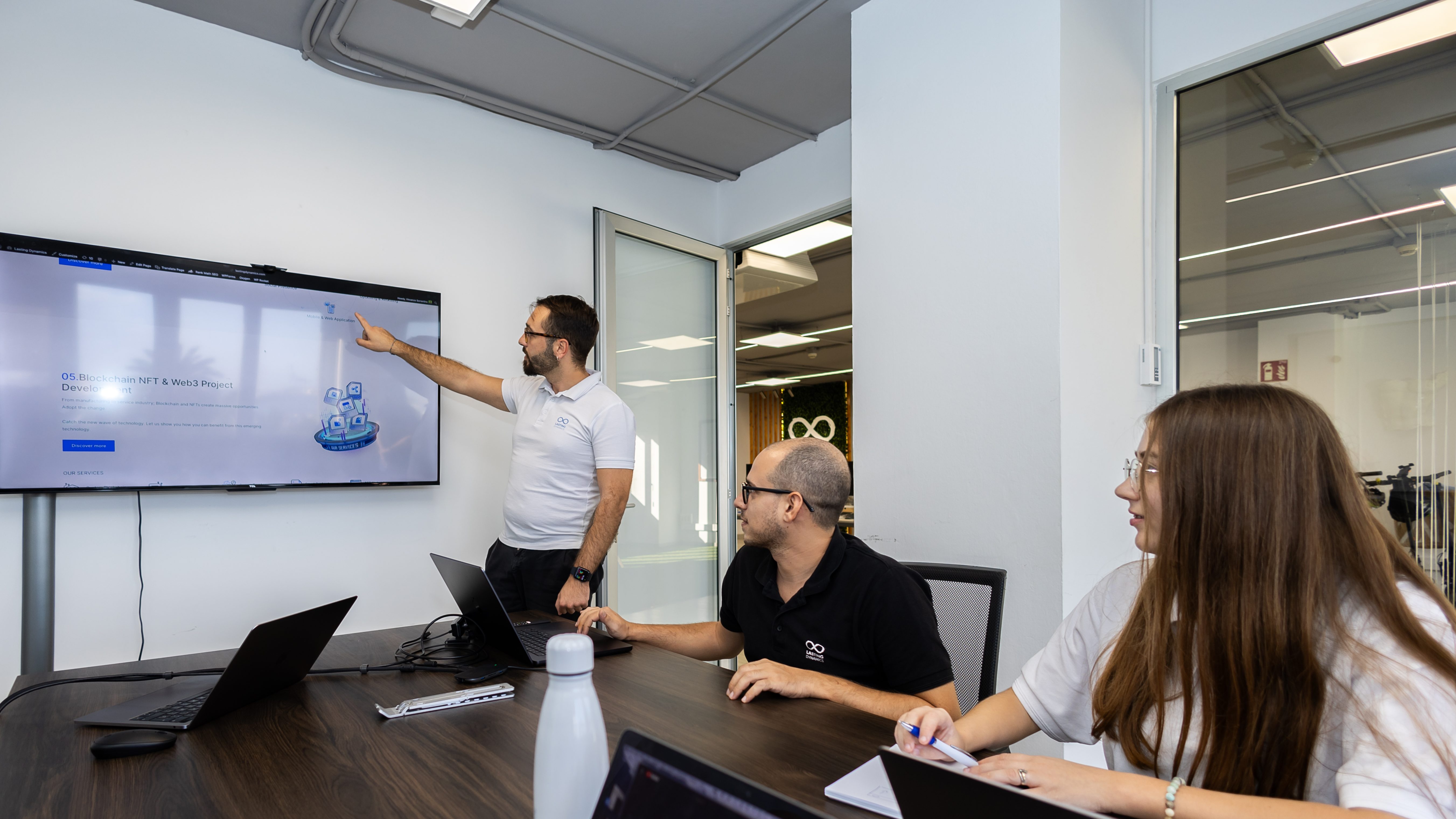Å skape fremragende programvare
La oss bygge noe ekstraordinært sammen.
Stol på Lasting Dynamics for enestående programvarekvalitet.
Luis Lambert
12. juni 2025 - 6 min lesing

I dagens raskt utviklende teknologilandskap kunne ikke oppfatningen om at programvaretankegang utelukkende handler om å skrive kode, vært lenger fra sannheten. Nyere statistikk viser at vellykkede programvareprosjekter er avhengig av en helhetlig tilnærming, der tekniske kodeferdigheter står for bare om 30% av hva som gjør en god programvareutvikler.
Det moderne programvareutviklingslandskapet har forandret seg dramatisk, med Stadig flere tar i bruk smidige metoder fra 37% til 86% mellom 2020 og 2021, noe som understreker viktigheten av en helhetlig tilnærming til utvikling.

Programvaretankegangen dreier seg i bunn og grunn om løse problemer i den virkelige verden. Dette prinsippet krever at utviklerne analyserer forretningskravene grundig før de går i gang med kodingsprosessen. I tillegg må de vurdere de langsiktige konsekvensene av de tekniske beslutningene sine, og sørge for at programvaren integreres godt i det større økosystemet. Det er også avgjørende at utviklerne vurderer potensielle behov for skalerbarhet og tar hensyn til sikkerhetskonsekvenser fra starten av.
Moderne programvareutvikling er avhengig av effektivt teamarbeid. Forskning viser at team som gjennomfører regelmessige retrospektiver har 20% større sannsynlighet for å nå eller overgå de opprinnelige målene. Slik ser et vellykket samarbeid ut i praksis:
De mest effektive utviklingsteamene har spesifikke kjennetegn som bidrar til at de lykkes:
I en verden der teknologien går så fort, betyr det å stå stille at man sakker akterut. Den moderne utvikleren må være opptatt av kontinuerlig læring, noe bransjetrendene også viser:
En narrativ utforskning av hvorfor man aldri bør gå på akkord med kvaliteten: Kvalitet i programvareutvikling handler om mer enn bare funksjonell kode. Det omfatter brukeropplevelse, ytelse, sikkerhet og vedlikeholdbarhet. Som Martin Fowler uttalte som kjent, "Gode programmerere skriver kode som mennesker kan forstå".
Denne filosofien støttes av forskning som viser at team som fokuserer på kvalitetsmålinger, opplever 60% færre feil og gjenoppretter seg etter hendelser 168 ganger raskere enn sine motparter.

Suksesshistorier fra store teknologiselskaper viser hvor viktig det er med brukersentrert design:
Det moderne programvareutviklingslandskapet krever fleksibilitet og tilpasningsevne. Spotifys Agile-modell har blitt en målestokk for organisatorisk smidighet:
La oss bygge noe ekstraordinært sammen.
Stol på Lasting Dynamics for enestående programvarekvalitet.
Teknisk ekspertise krever en balansert tilnærming som går langt utover grunnleggende kodingsferdigheter. I bunn og grunn krever det en programvaretankegang som omfavner kontinuerlig forbedring og bærekraftig utviklingspraksis. Dette kommer til uttrykk gjennom en omfattende forståelse av prinsipper for ren kode, designmønstre, beste praksis for arkitektur, ytelsesoptimalisering og sikkerhetshensyn.
Veien til teknisk ekspertise krever også en forpliktelse til kontinuerlig læring og tilpasning. Dette innebærer å holde seg oppdatert på ny teknologi, delta i kodegjennomganger og bidra til initiativer for kunnskapsdeling i utviklingsteamene. Vellykket implementering av prinsippene for teknisk ekspertise har vist seg å føre til mer vedlikeholdbare kodebaser, raskere utviklingssykluser og mer pålitelige programvareprodukter.
Disse inkluderer:

Programvaretankegangen fortsetter å utvikle seg med nye metoder og tilnærminger. Her er en detaljert oversikt over de mest innflytelsesrike.
Innføringen av DevOps-praksiser fortsetter å endre programvareleveransene, selv om det er viktig å være nøye med de konkrete beregningene. Ifølge nylige DORA-rapporter har organisasjoner som implementerer DevOps-praksiser, opplevd betydelige forbedringer i leveringsytelsenog bruk av nettskyen fører til økt fleksibilitet i infrastrukturen.
DORA-rapporten fra 2022 viste at organisasjoner som bruker skyteknologi, demonstrerte 1,4 ganger høyere organisatorisk ytelse sammenlignet med de som ikke gjorde det.
Fremtiden for programvareutvikling formes av flere viktige trender, særlig innen kunstig intelligens og maskinlæring:

Lasting Dynamics, et prisbelønt programvarehus som ble formelt registrert i Italia i 2015, er et godt eksempel på moderne programvaretankegang gjennom sin omfattende tilnærming til utvikling. Med kontorer på tvers av Norden, Spania, Australia, Estland og Dubai, viser selskapet hvordan globalt samarbeid og ulike perspektiver forbedrer resultatene av programvareutviklingen.
Viktige aspekter ved Lasting Dynamicss tilnærming som er i tråd med programvaretankegangen, er blant annet
Fra idé til lansering lager vi skalerbar programvare som er skreddersydd til dine forretningsbehov.
Samarbeid med oss for å akselerere veksten din.
Selskapets praktiske implementering av beste praksis for programvareutvikling viser hvordan teoretiske prinsipper kan omsettes til suksess i den virkelige verden:
Hos Lasting Dynamics er kvalitetssikring en selvfølge gjennom implementering av omfattende testmetoder, som blant annet omfatter enhetstesting, integrasjonstesting og ende-til-ende-testing (E2E). Disse metodene er avgjørende for å sikre at applikasjonene fungerer som forventet, er pålitelige og gir en sømløs brukeropplevelse.
Selskapet benytter både automatiserte og manuelle testprotokoller for å dekker ulike aspekter av programvarekvalitet. Denne doble tilnærmingen gir mulighet for grundig validering av funksjonalitet og ytelse, noe som sikrer at sluttproduktet oppfyller høye standarder. I tillegg integrerer Lasting Dynamics banebrytende teknologi i kundeløsningene, noe som ikke bare forbedrer den generelle kvaliteten, men også sørger for at programvaren er i tråd med de nyeste fremskrittene i bransjen.
Lasting Dynamics demonstrerer fremragende prosjektgjennomføring gjennom grundig prosjektplanlegging og fastsettelse av milepæler. Selskapet legger vekt på regelmessige retrospektiver og tilbakemeldingssløyfer, noe som legger til rette for kontinuerlig forbedring og tilpasning gjennom hele utviklingsprosessen. Tett samarbeid mellom tekniske team og forretningsenheter er et kjennetegn ved deres tilnærming, noe som sikrer at alle interessenter er samkjørte og at programvareløsningene er skreddersydd for å dekke spesifikke forretningsbehov.
Dette samarbeidsklimaet fremmer innovasjon og lydhørhet, noe som til syvende og sist fører til vellykkede prosjektresultater og fornøyde kunder. Ved å fokusere på disse nøkkelaspektene ved prosjektledelse leverer Lasting Dynamics effektivt tilpassede programvareløsninger som løser de unike utfordringene kundene står overfor.

Programvaretankegangen representerer et grunnleggende skifte fra å se på utvikling som ren koding til å forstå det som en omfattende disiplin som omfatter alt:
Etter hvert som vi beveger oss fremover, vil suksessen til programvareutviklingsprosjekter i økende grad avhenge av at man tar i bruk dette helhetlige tankesettet. Med innføringen av nettskyen og når 94% innen 2025 og den kontinuerlige utviklingen av utviklingsmetoder, vil fagfolk som dyrker denne helhetlige tilnærmingen, ha de beste forutsetningene for å lykkes på feltet.
Denne omfattende guiden viser at programvareutvikling er en mangefasettert disiplin som krever et bredt spekter av ferdigheter og perspektiver. Ved å integrere disse prinsippene og holde seg oppdatert på nye trender kan utviklere skape mer verdifulle, bærekraftige og effektive løsninger.

Bygg smartere. Bygg bedre.
Leter du etter et produktteam som tenker mer enn bare kode? 👉 Kontakt oss på Lasting Dynamics.
Vi designer og bygger digitale produkter av høy kvalitet som skiller seg ut.
Pålitelighet, ytelse og innovasjon i alle ledd.
For kode alene løser ikke problemer som mennesker har. Suksess avhenger av at man forstår brukerne, håndterer omfanget, tester grundig og planlegger for skala.
Det er en helhetlig tilnærming til det å bygge digitale produkter som omfatter visjon, empati, samarbeid, testing og tilpasningsevne, ikke bare programmering.
UX sikrer at produktet er intuitivt og løser reelle problemer. Uten god UX vil selv den best utviklede programvaren ikke oppnå kontakt med brukerne.
Fordi det samordner team, styrer omfanget og sikrer levering til rett tid. Det gjør ideer om til ferdige produkter på en effektiv og bærekraftig måte.
QA handler om å bygge tillit og fange opp problemer tidlig. Den gir kritiske tilbakemeldinger for å forbedre produktkvaliteten, brukeropplevelsen og teamets effektivitet.
Forvandle dristige ideer til kraftfulle applikasjoner.
La oss skape programvare som gjør en forskjell sammen.
Luis Lambert
Jeg er multimediedesigner, tekstforfatter og markedsføringsekspert. Jeg søker aktivt etter nye utfordringer for å utfordre ferdighetene mine og vokse profesjonelt.